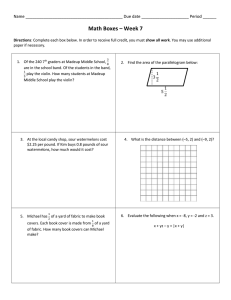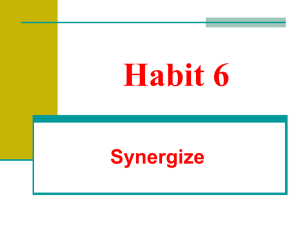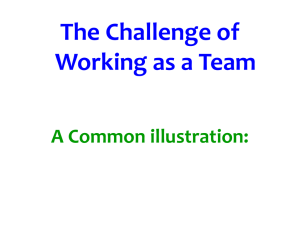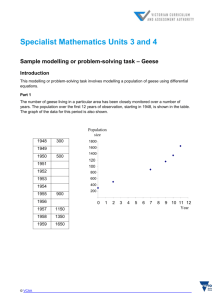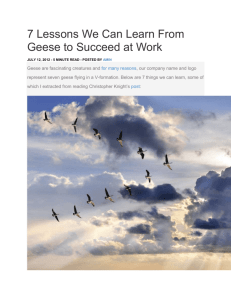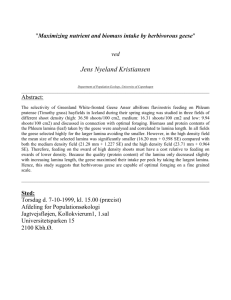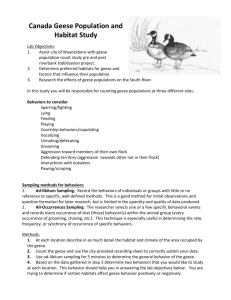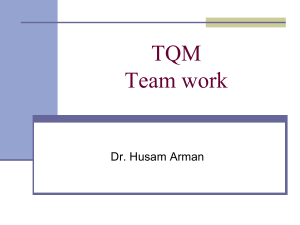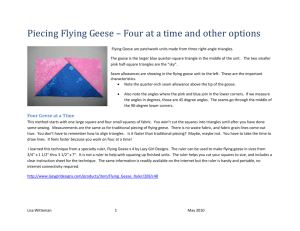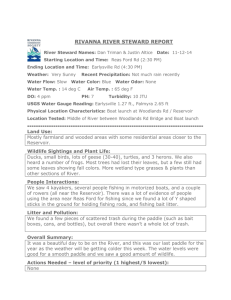Save our Lakes - Geese Control info
advertisement
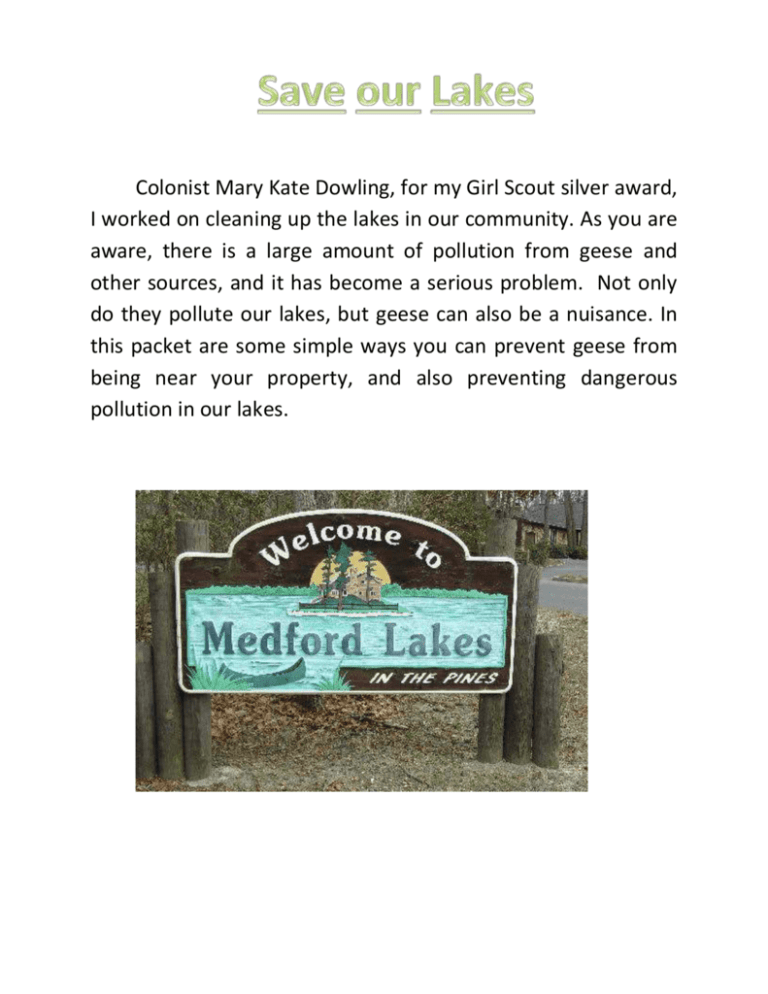
Colonist Mary Kate Dowling, for my Girl Scout silver award, I worked on cleaning up the lakes in our community. As you are aware, there is a large amount of pollution from geese and other sources, and it has become a serious problem. Not only do they pollute our lakes, but geese can also be a nuisance. In this packet are some simple ways you can prevent geese from being near your property, and also preventing dangerous pollution in our lakes. Why should geese be prevented?? Geese can cause lots of pollution, noise, and property destruction. Pollution- The levels of pollution in our lakes can be very dangerous, and the beaches get closed in the summer. In goose waste there is a fecal bacteria, which is a disease causing bacteria that makes swimming in the contaminated water a health risk. Noise and Disturbances- Geese can be very loud, especially a large group of geese. They can also be very aggressive towards humans when they are protecting their nest. Property Damage- Geese can trample over shrubs and other plants or they might eat grass in your yard. How can we prevent geese? Some ways to get rid of geese with out harming them is by not feeding them, using barrier fencing, and modifying your landscape. Landscape modification- This is when you alter your landscape to keep geese from getting into your yard. Geese like small plants and short grass so they can see their predators. By planting tall grass on the edge of your property, you can keep geese out of your yard. Below are some plants that geese will not enjoy to be around. Geese do not prefer: • Mature tall fescue • Periwinkle • Myrtle • Pachysandra • English ivy • Hosta Plantain lily • Ground juniper • Switch grass Tall prairie grass - Here are some pictures of some plants you may recognize: Periwinkle Hosta Switch Grass English ivy Ground Juniper Pachysandra Other types of pollution that you can help prevent: Pets- Clean up after your dog in your own yard. When it rains it will wash directly into the lake Litter- Don’t litter on the beach. Clean up your trash when you leave and throw away garbage and recycle bottles. Also remember not to leave cigarettes on the beach. Fertilizer- Don’t overuse fertilizers in your yard. Fertilizers contain nitrates and phosphates, which can contaminate water, making it unhealthy. When fertilizers seep into the ground, they combine with groundwater making drinking water and have high levels of nitrates and can harm humans and other animals. Rain can also wash these harmful chemicals directly into the lake. Different web sites you can check out for more information: http://www.michigan.gov/dnr/0,1607,7-153-10370_12145_25065-59467--,00.html http://water.epa.gov/type/rsl/monitoring/vms511.cfm http://www.agroservicesinternational.com/Environment/Problems.html http://www.lakescientist.com/learn-about-lakes/water-quality/pollution.html
